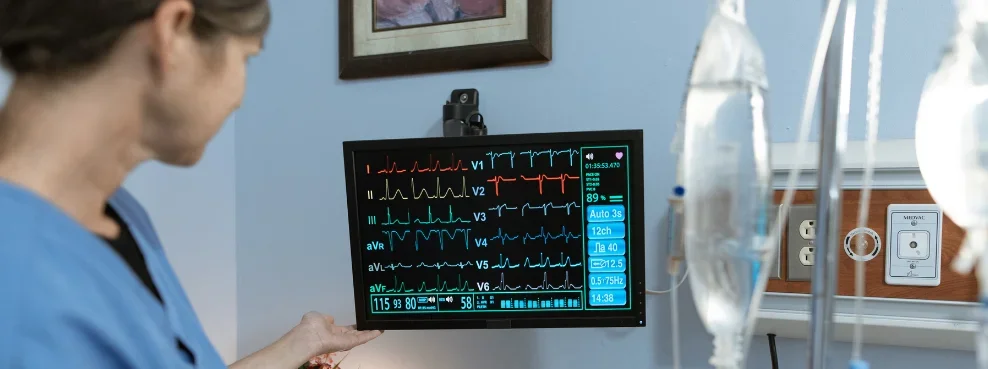How digitalisation makes day-to-day care in hospitals easier
A recent study by Witten/Herdecke University examines the importance of the motives and values of nursing staff when introducing digital technologies. Efficiency and patient-orientation are important drivers.

Digital solutions are also increasingly being used in hospital care. Researchers at Witten/Herdecke University have conducted a study on leadership and motivation in change processes in acute care, which has now been published in the International Journal of Environmental Research and Public Health.
300 nursing staff comment on tablets and smart glasses (data glasses)
For two digital innovations - tablets and smart glasses (data glasses) - the researchers investigated which motives and values particularly support the willingness of nursing staff in hospitals to change. Almost 300 nurses took part in the study and gave their assessment of typical situations (vignettes) from hospital care, in each of which motives and values were varied.
"Our results show that nursing staff in hospitals are generally very willing to use technology and can be activated well through value-oriented leadership," says Prof. Dr Sabine Bohnet-Joschko, Chair of Management and Innovation in Health Care and ATLAS project manager, categorising the results of the vignette study and adds: "Good leadership in the health care system is always leadership of change."
"The tablet as a familiar technology from many people's everyday lives was predominantly rated positively," reports first author and doctoral student Lisa Korte, "while smart glasses as a largely new technology are initially associated with additional work on the part of care professionals. According to our results, their clearly recognisable benefits are particularly important for the successful implementation of digital innovations. However, we were able to recognise from the respondents' comments that there have also been some bad experiences with complex, error-prone and not immediately useful applications in hospitals."
Efficiency as a motive for using innovations
An important motive for the nursing staff surveyed was the desire for efficient processes: An emphasis on the benefits of using digital innovations for workflows and processes in the form of time savings and efficient exchange of information increased the willingness to use technology. The researchers assume that structure in everyday working life increases the commitment and productivity of nursing staff and allows them more time to interact with patients. Detailed insights into the characteristics and conditions of the use of digital innovations in hospital care can be found in the publication:
L. Korte & S. Bohnet-Joschko, "Digitisation in Everyday Nursing Care: A Vignette Study in German Hospitals". Int. J. Environ. Res. Public Health, 2022. DOI: https://doi.org/10.3390/ijerph191710775
The study was conducted as part of the "Innovation and Digital Transformation in the Health Care System" (ATLAS ITG) project funded by the state of North Rhine-Westphalia. ATLAS supports the transfer of theory to practice by analysing current studies and bringing together lighthouse projects and players in digital health management in NRW: www.altas-digitale-gesundheitswirtschaft.de
Photos for download
Contact person

Svenja Malessa
Press Officer
Administration | Communication & Marketing
Alfred-Herrhausen-Straße 48
58455 Witten
Room number: 2.F05
